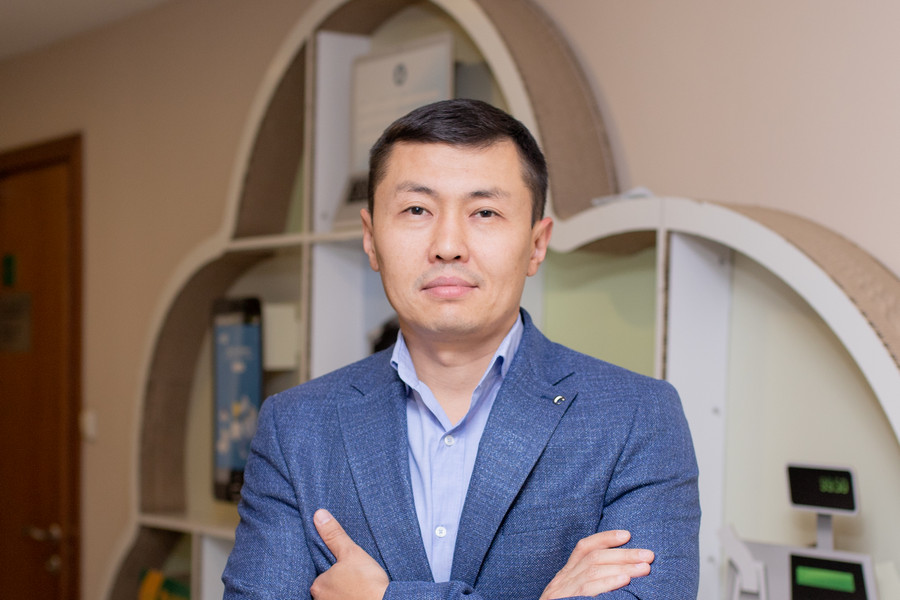Eurasian Economic Commission Trade Minister Veronika NIKISHINA:
WE ARE WORKING TOWARDS FREE TRADE AGREEMENTS WITH THIRD COUNTRIES

The Eurasian Economic Union (EEU) continues building cooperation with third countries. The first free economic zone, which was established with Vietnam in 2015, was a great success and inspired the EEU states to work towards new agreements on free economic zones. During the 11th Astana Economic Forum an interim agreement on a free trade zone was signed with Iran and a trade and economic cooperation agreement with China. Veronika NIKISHINA, the trade minister of the Eurasian Economic Commission, told Interfax-Kazakhstan in an interview about the benefits these documents can bring to the EEU.
- An interim agreement for the creation of a free trade zone with Iran was signed during the Astana Economic Forum. This document should have been signed last spring but the signing process dragged on. Are there any unresolved issues left or did the parties to the agreement resolve all the issues? What goods will be imported from Iran to the Eurasian Economic Union (EEU), including Kazakhstan, and vice versa? What volume of turnover can be expected in the first year and later in the medium and long term?
- The negotiations were not very long: it only took a year to complete them. During the last six months we were trying to find acceptable solutions concerning most sensitive issues. It had also taken some time to complete the internal procedures in the EEU states before the final package of agreements was signed.
Despite the short list of goods contained in the agreement, practically all key export items of both parties were included in the agreement. Therefore, the tariff concessions for certain categories of goods, especially in the agricultural sector, required a detailed analysis, economic assessment of possible consequences and consideration of possible scenarios of tariff liberalization by the government agencies of the concerned states.
Iran granted the EEU concessions on a number of goods, including nearly all key export products of the EEU states, providing preferential access to the Iranian market for such important commodity groups as cereals, certain types of meat (beef and lamb), butter, confectionery, mineral water, pharmaceutical and metallurgical products, cosmetics, timber, tractors, buses.
According to our estimates, Iran’s concessions to the EEU will total $1 billion worth of sales turnover.
The EEU grants concessions on Iran’s goods that include some vegetables and fruit, nuts, foodstuffs, as well as petroleum products, building materials and textile goods.
The concession tariffs vary between 25% and 100% of the EEU’s existing import tariffs depending on the category of goods.
- There is the trading and economic cooperation agreement with China, which was also signed during the Astana Economic Forum. They say that this document is not a free trade zone agreement but rather a memorandum aimed at improving and deepening the relations and removing the barriers. What is the practical value of this document?
- The agreement stipulates a wide range of capabilities for the EEU states and is aimed at protection of their key interests in such areas as intellectual property, consumer rights in electronic commerce and others.
In accordance with the WTO standards, the agreement provides all members of the EEU guarantees in regards to horizontal commitments, as well as favorable national treatment compared with the other countries participating in the WTO.
The commitment provisions are also included in the sections relating to technical barriers, sanitary and phytosanitary measures. We have laid a solid foundation for further sectoral agreements between the EEU and China that will aim at removing the technical barriers to trade.
We agreed on customs mechanisms for the businesses to facilitate mutual trade. The section on intellectual property is focused on protection of the trademarks and service brands.
The agreement also includes sections dealing with such matters as counterfeit goods, competition, government procurement, online trading and others.
For the first time in our practice, we managed to include in the agreement a section on the so-called sectoral cooperation between the EEU and China. Thus, we developed principles for further cooperative and infrastructure projects between our countries. The relevant agreements follow from the EEU’s "integration competencies" and enable our businesses to carry out large-scale and integration-oriented projects in various fields, including industrial production, construction, infrastructure, technology and others.
- The agreement on a free trade zone with Vietnam was the first document ever to establish a preferential trade regime between the EEU states and a third country outside the CIS. What are the results of this cooperation?
– In 2017, the sales turnover between the EEU and Vietnam came to $5.9 billion or an increase of 36% from 2016. Imports from Vietnam to the EEU rose 35% to $3.7 billion from $2.7 billion and exports to Vietnam grew 40% to $2.3 billion from $1.6 billion.
The preferential trade regime has allowed Vietnam to become a key trade partner in the EEU and the ASEAN.
Of all the EEU states, Kazakhstan demonstrated most positive tendencies in trade with Vietnam: the sales turnover between Kazakhstan and Vietnam expanded nearly 100% to reach $543 million in 2017.
Imports of goods subject to tariff preferences by the EEU from Vietnam totaled over $400 million and exports to Vietnam amounted to $369 million.
In addition, the EEU started selling goods, the import of which had earlier been restricted by Vietnam. Such goods include wheat, corn, batteries and others.
There has been an increase in imports of electronic goods that are subject to a zero customs duty in the EEU. These include telephones and mobile phones, the imports of which rose by 51%, copying machines and faxes (up 189%), printers (up 32%) and vacuum cleaners (up 19%).
- It was reported earlier that an agreement on a free trade zone might be signed with Singapore by the end of the year. What goods are of mutual interest to the parties? Are there plans to sign such agreements with any other countries?
– Our Union is a large market with about 180 million people and over 50 countries have already expressed their interest in cooperation with the EEU. In 2017 the sales turnover with third countries grew by 24.4%.
Together with the EEU states, the Eurasian Economic Commission is conducting talks about cooperation agreements with the world’s largest economies including China and India.
In 2015-2016 the Supreme Economic Council of the Eurasian Economic Union decided to launch talks with Egypt, Israel, India and Singapore about agreements on free trade zones.
A number of European countries that are not members of the European Union are also interested in cooperation with the EEU. Such countries include Serbia, Switzerland, Macedonia, Bosnia and Herzegovina.
We have already held a series of negotiations with Israel and Serbia. Provided that all involved parties demonstrate a required level of flexibility, the agreements may be signed in the near future.
We discussed general terms and conditions of future negotiations and agreements with Egypt and India during our preliminary technical consultations. The first round of talks with these countries will take place in the first half of 2018.
The negotiations concerning a free trade zone agreement between the EEU and the Republic of Singapore started in the second half of 2017. During the negotiations, we focus not only on the creation of a free trade zone with Singapore but also on the introduction of preferential terms and conditions for trade in services.
We conducted three rounds of negotiations from the summer of 2017 until May of 2018. Also, a number of meetings are scheduled to take place this year. I can say that the both parties are determined to conduct the negotiations in a most efficient way and to achieve best results. However, it won’t be until this autumn that we will be able to tell if the EEU and Singapore are close to the completion of the negotiations.
All new cooperation agreements with third countries, including agreements on free trade zones, will create conditions for the diversification of trade, provide more welcoming conditions for the EEU-based companies in foreign markets, and help attract new investment in the states participating in the Eurasian Economic Union.
- Thank you for your time!
June, 2018
© 2024 Interfax-Kazakhstan news agency
Copying and use of these materials without reference to the source is prohibited
Archive






